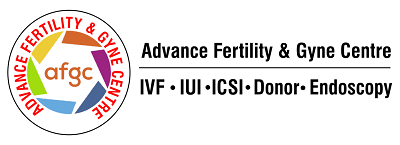Why Food for Fertility Matters During IVF
During IVF, your body is doing intense work: producing good-quality eggs, preparing the uterine lining, and supporting embryo implantation. What you eat in the months before and during IVF can influence egg quality, sperm quality, hormone balance, and even inflammation in the body. Diet patterns rich in vegetables, fruits, whole grains, healthy fats, and adequate (not excessive) protein have been linked with better ovulation, healthier eggs and sperm, and in some studies, higher chances of pregnancy with assisted reproductive technology like IVF [1–3].
Two very common fertility challenges are PCOS in women and borderline sperm quality in men. High refined carbs (white rice, maida, sweets, sugary chai) and lots of fried or junk food worsen insulin resistance, which disrupts ovulation [4–5]. For men, antioxidants from colourful plant foods and good hydration help protect sperm from oxidative stress [1, 6].
Hydration matters too. Cervical mucus — the fluid that helps sperm travel — is mostly water, and dehydration can make it thicker and less sperm-friendly. Good hydration also supports blood flow to the uterus and hormone transport [6]. In short: regular meals, plenty of vegetables and fruit, steady protein, and good hydration form the foundation of a fertility-supportive lifestyle.
Best Foods That Improve Fertility Naturally
1. Rainbow vegetables and fruits
Palak, methi, lauki, carrot, beetroot, tomato, amla, orange, berries, guava — these are loaded with antioxidants and anti-inflammatory compounds. Diets rich in such nutrients have been linked to better egg quality, sperm parameters, and in some studies, higher IVF success [1–3]. Aim for two seasonal veggies and one fruit at every major meal.
2. Whole grains and slow carbs
Swap refined carbs for whole grains: atta with chana, jowar, bajra; red or brown rice; dalia; rolled oats; or millets like ragi and jowar roti. Low–glycaemic index foods improve insulin sensitivity and help regulate cycles in PCOS [4–5].
3. Plant proteins and moderate dairy
Dal, rajma, chole, lobia, soy, tofu, sprouts, paneer, and curd give protein without excess saturated fat. Higher intake of plant protein instead of animal protein has been associated with a lower risk of ovulatory infertility [7]. Think “dal + sabzi + roti + dahi” as a simple fertility plate.
4. Healthy fats
Nuts (walnut, almond), seeds (flaxseed, chia, til), and cold-pressed mustard or groundnut oil provide omega-3 and monounsaturated fats. Diets rich in these fats and plant foods — similar to the Mediterranean pattern — are linked to better embryo quality and pregnancy rates [2–3].
5. Iron, folate, and B12
Folate and iron support egg development and prevent anemia. Sources include palak, dals, rajma, chickpeas, and fortified cereals; pair them with vitamin C foods like lemon, amla, or tomato to enhance absorption [8]. B12 from dairy, eggs, or supplements is also essential in mostly vegetarian diets.
6. Fluids
Plain water, lemon-pudina water, unsweetened coconut water, thin buttermilk, or herbal teas all count. Good hydration supports cervical mucus, semen volume, hormone transport, and uterine lining health [6].
Foods to Avoid for Better Fertility
- Refined sugar and high-GI sweets – Mithai, bakery biscuits, sweetened tea or coffee, and maida-based snacks cause insulin spikes linked with ovulation problems and PCOS [4–5].
- Fried and processed foods – Pakoras, samosas, chips, and snacks fried in reused oil contain trans fats, which may lower fertility [2, 9].
- Excess red and processed meat – Heavy or daily consumption of mutton, sausages, and fatty grilled meat increases inflammation and may affect fertility [2, 7].
- Sugary beverages and alcohol – Soft drinks and alcohol worsen insulin resistance and reduce egg and sperm quality [2, 5].
- Crash diets and unverified supplements – Extreme dieting before IVF stresses the body; and high-dose antioxidant pills haven’t consistently improved pregnancy rates [10–12].
Sample Meal Plan to Support Fertility
Early morning:
- Warm or plain water
- 4–5 soaked almonds + 1 walnut
- Optional: amla piece or lemon water
Breakfast:
- Moong dal cheela stuffed with paneer and palak
- Mint-coriander chutney
- A bowl of papaya or guava
Mid-morning:
- Coconut water or chaas
Lunch:
- 1–2 multigrain rotis (atta + besan + jowar)
- Rajma/chole/dal
- Seasonal vegetable (lauki-chana, bhindi, mixed veg)
- Kachumber salad
- Plain curd
Evening snack:
- Roasted chana or sprouts chaat
- Fruit like orange or pomegranate
Dinner:
- Vegetable khichdi (moong dal + millet or brown rice)
- Palak dal or sautéed greens
- Carrot-cucumber raita
Hydration target: 2–2.5 L fluid daily for most women and around 3 L for men, adjusting for climate and activity. Pale yellow urine indicates good hydration [6].
Lifestyle Tips for Maintaining Fertility
- Eat on time. Skipping meals and overeating later causes insulin swings that disturb ovulation [4–5].
- Move regularly. Brisk walking, yoga, or light strength training improve insulin sensitivity and hormonal balance [11].
- Maintain a healthy weight. Obesity lowers IVF success, but crash diets before treatment are unhelpful [10].
- Sleep and stress management. Adequate sleep and stress-relief practices such as meditation or counselling support hormone regulation.
- Avoid toxins. Smoking, heavy alcohol, and exposure to polluted air or chemicals can harm egg and sperm quality [13].
Key Takeaway
There’s no magic fertility food. The most effective approach is simple: eat regular, balanced meals filled with vegetables, fruits, dal, whole grains, nuts, and seeds; stay hydrated; limit sweets and fried foods; keep protein steady but moderate; move daily; and rest well. These sustainable habits support hormone balance, egg and sperm quality, and overall IVF readiness [1–3, 4–5, 7, 10–11].
References
[1] Baroutis D. et al. The Mediterranean Diet as a tool for promoting fertility and improving assisted reproduction outcomes. Nutrients, 2024. PubMed Central
[2] Alesi S. et al. Anti-inflammatory / Mediterranean-style diets, fertility, and ART success, including reduced intake of red/processed meat and more monounsaturated and omega-3 fats. Nutrients, 2022. MDPI
[3] Donato M. et al. Lifestyle intervention and female fertility: adherence to “pro-fertility” diets associated with improved assisted reproduction outcomes. Life (Review), 2025. PubMed Central
[4] Manta A. et al. High–glycaemic index and load diets are linked with higher risk of PCOS and ovulatory problems. Nutrients, 2023. PubMed Central
[5] Jurczewska J. et al. Low-quality carbohydrates and high-GI/high-GL patterns are associated with ovulation disorders, especially in women with PCOS. Nutrients, 2022. MDPI
[6] Progyny Editorial Team. “The importance of hydration while trying to conceive,” updated Sept 2025. Notes that hydration supports cervical mucus, semen volume, and hormone transport. Progyny
[7] Chavarro J.E. et al. Higher plant protein (dal, beans, legumes, soy) and lower animal protein intake were linked to lower risk of ovulatory infertility in the Nurses’ Health Study II. Am J Obstet Gynecol, 2008. PubMed Central
[8] Academy of Nutrition and Dietetics / Harvard analysis of the Nurses’ Health Study II: iron from plant sources plus folate linked with lower ovulatory infertility risk. 2020 review. Harvard Health
[9] Skoracka K. et al. Diets high in trans fats and certain saturated fats may negatively affect fertility. Curr Opin Endocrinol Diabetes Obes, 2021. ScienceDirect
[10] Boddeti S. et al. Obesity is associated with poorer IVF outcomes and lower live birth rates; maintaining a healthy BMI supports ART success. Reproductive Biology (Review), 2025. PubMed Central
[11] Rich-Edwards J.W. et al. Each additional hour/week of vigorous physical activity was associated with ~7% lower risk of ovulatory infertility, independent of BMI. Obstet Gynecol, 2002; updated summaries 2025. PubMed+1
[12] de Ligny W.R. et al. Randomized clinical trial: high-dose antioxidant supplements in men did not significantly improve ongoing pregnancy rates vs placebo. Fertil Steril Reports, 2025. PubMed Central
[13] Guardian summary of 2024–2025 IVF pollution research: higher exposure to particulate pollution around egg/sperm development associated with poorer embryo quality and fertilization. 2024/2025 analysis of ~1400 IVF patients.

